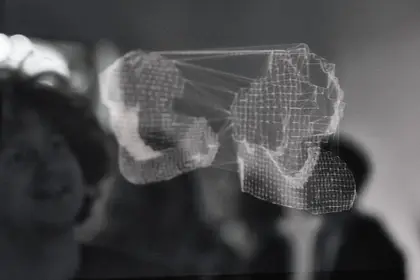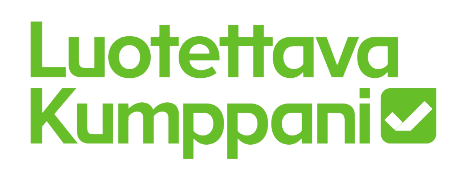Executive Summary
- Industrialization 4.0 on the doorstep
By 2022, a significant shift on the frontier between humans and machines when it comes to existing work tasks is expected. - Humanity as the differentiator
Being human will be at the forefront of business, enabling people to leverage their uniquely human capacity. However, despite this urgent necessity, contemporary employees are often incomplete in people skills, and not all managers comprehend the need to develop them. - A huge amount of people skills is demanded
The necessary soft skills for the future workplace are discussed at length. Workforce should have skills such as communication skills, intercultural competencies, complex problem-solving skills, collaboration skills, emotional intelligence, creativity and so on. The question rises who ever can fulfill them? - A checklist is not enough
Developing people skills is complex, multidimensional and multifaceted. It does not happen overnight but takes experience and time. To have an impact, it requires a process- and long-term oriented approach, combining experience and knowledge. - Humanity is an asset
Too often, humanity is considered a liability. Acknowledging humanity as an asset requires investing in people at all levels of the organization long-term. Success will come if there is a culture of life-long learning and collaboration. Bold leadership, rethinking and acting now is critical. - What can you do?
- Make it a priority to prepare all employees and create a navigation team to prepare for Industrialization and globalization 4.0
- Conduct a needs analysis of what people skills are needed in your company
- Develop a strategic plan on developing people skills
- Get started now: upskill your workforce, the clock is ticking
Gone are the days when the workplace was merely a physical space with regular office hours. The world of work is going through a period of unprecedented transformation. Deloitte states that the Fourth Industrial Revolution, the marriage of physical and digital technology, promises to upend how all of us work, from interns to top executives. Machines will change the context of jobs, leading people to specialize in tasks that are unpredictable, not robotic.
Klaus Schwab puts it in the preface of the World Economic Forums’ Future of Jobs report 2018: “The emerging contours of the new world of work in the Fourth Industrial Revolution are rapidly becoming a lived reality for millions of workers and companies around the world. The inherent opportunities for economic prosperity, societal progress and individual flourishing in this new world of work are enormous yet depend crucially on the ability of all concerned stakeholders to reform.”
Thus, in this global, innately interdependent and multicultural world, humanity comes to the centre of attention. Between 2018 and 2022, companies expect a significant shift on the frontier between humans and machines when it comes to existing work tasks. Business and financial acumen, as well as technical skills, are not sufficient by themselves. It’s the balance of the two that reckons.
Not surprisingly is there a call for various new skillsets demanded at all levels. For a long time, people skills were considered incidental, although recent research shows the opposite. A US survey reports businesses, with up to 100 employees each, wasted an average of US $ 420,000 per year due to miscommunication. In the Holmes Report July 2011 on “The Cost of Poor Communications” 400 companies each with 100,000 employees, demonstrate inadequate communication to, and between employees, costing an average of US $ 62.4 million per company per year.
Being human will be at the forefront of business, enabling people to leverage their uniquely human capabilities. A new report from McKinsey Global Institute sees the demand for social and emotional skills rising by 24 per cent to 22 per cent of hours worked. A LinkedIn Global Survey shows that 91% of talent professionals agree that soft skills are a major trend for the future of recruiting and HR. The seven top characteristics of success at Google are all soft skills.
Despite the obvious need for increasing people-skill capacities, both current and potential employees are often reported as being deficient in these skills. Even though executives state that people skills are as important as academic ability, not all leaders are urged to develop them. While a Deloitte report reports 86% of executives are saying they are creating a better-prepared workforce for the new era, talent and HR are on a relatively low priority with 17%.
What people skills are needed in the future workplace?
Researching soft skills that will be necessary for the future of work has uncovered a vast array of skills, mostly presented as lists. Intentionally, the most important skills are identified and enumerated, as another list is not what this conversation requires.
Communication competencies are crucial, comprising skills such as speech clarity, speaking, active listening, persuasion and negotiation, reading comprehension, writing and presentation. A recent survey by the National Association of Colleges and Employers in the U.S. rank communication skills in the top three most-sought-after qualities by job recruiters.
Complex problem solving is a close second, gathering skills like problem sensitivity, mental elasticity, fluency of ideas, complex information processing and being able to make connections across complex ideas. Additionally, critical thinking, attention to details and innovative thinking are stipulated.
Social and emotional skills are on the rise such as emotional intelligence, adaptability, social intelligence, emotional safety, originality, resilience, possessing insights to others and social perceptiveness. Core in this group is empathy and collaboration. Such proficiencies are essential as projects grow increasingly more complex and intercultural. Finally, the need for creativity and inquisitiveness shifts up as the future business challenges demand innovation for growth.
Looking at all these requirements to be work-ready for the future raises the question of whoever can fulfil them? Additionally, one wonders if such long lists of requirements are helpful.
Taking a broader, interdisciplinary view
As globalization matures, it is normal to work and interact amongst people of many origins in person or virtually. Surprisingly, intercultural competencies, broadly defined as the ability to interact and communicate across cultures in a respectful, attentive and reflective manner, is hardly mentioned as a requirement for the future workplace.
Early corporate research from expatriate management, created lists of characteristics relative to intercultural ‘competency’, too. They proved to be very ineffective. Today, intercultural competencies are mostly viewed as a conceptual approach, a set of cognitive, affective and behavioural skills working together (Uehlinger, p. 31).
The future is intercultural and interdisciplinary. It is advisable to take such an approach, corroborating with contemporary research and the continuance of professional development of intercultural competencies and people skills building.
Now what?
Undoubtedly, global labour markets are rapidly undergoing major transformations. World Economic Forum’s Job Report 2018 states that by 2022 no less than 54% of all employees will require significant re- and upskilling. Executives and workers will need to have the appropriate people skills that will enable them to successfully lead the transformation and to thrive in the future workplace.
Addressing and raising awareness for people skills is the first step, but not enough. It needs much more:
- First, the huge change process the global workplace is in, including a necessary change in mindsets, needs to be embraced and proactively addressed. There is no time to waste. Sadly, research such as the Future of Jobs Report 2018 shows, that current re- and upskilling efforts are largely focused on highly-skilled employees – an expression of a traditional mindset and leadership style. Lower level employees most in need are least likely to receive such education.
- Secondly, the “skills lists” and a few models are in general too rational, and overly cognitive, forgetting the human being. Additionally, articles such as “Here are the five top skills you need for the future” provide false security. Time has come to reconnect to human nature, less scrutiny and ego, and more empathy and consciousness in communication and business advancement.
- Third, developing the necessary people skills does not happen with a half day webinar or a checklist. On the contrary, it takes time and a process-oriented approach.
Developing proficiencies require an inner, self-reflective process as well as a combination of experience and knowledge, to guarantee a transfer into everyday life. It starts with oneself and is a life-long learning endeavour. Short-term trainings are often money-wasted. Learning emerges from the continued opportunity to construe the experiences and reconstrue them in transformative ways.
For instance, a Swiss businessman, appointed to an executive board of a Japanese company, didn’t realize the Japanese way of doing business. Furthermore, his Japanese colleagues didn’t understand his cultural ways either. Knowing this impasse, he hired me, and we started to develop intercultural competencies. After eight months of a self-reflective approach, consisting of intercultural assessments, one-to-one coaching, reflections on his own culture and the Japanese culture, he emerged as an intercultural success. The key was to recognize and understand his experiences and perspectives to transform them into opportunities. As a result, he worked more effectively and achieved better business results. The more time devoted to this practice, the more foundational the change. Being in relation to those different than you is a lifelong practice, not something achieved in a half-day training or webinar.
Finally, it is high time to see soft factors as essential, not as a hindrance. Such trainings are an investment, not a liability. Companies wishing to be successful in the future have no choice as to substantially invest in people long-term and to create a culture of life-long, continuous learning which requires a strategic approach.
Research of the World Economic Forum believes that the window of opportunity, for proactive management of the workplace change, is closing fast. Business, government and workers must plan and implement a new vision for the global labour market now. Humanity needs to be back in business at all levels. Time to act is now. A wait and see approach is already having a negative impact. For a future of good work for all bold leadership is critical. Are you ready?
Ask yourself: Are you ready?
Three thought-provoking questions to ponder honestly:
- On a scale from 1 to 10: how important is it for you and your organization to take the lead in the industrialization 4.0?
- How willing are you to openly embrace this change and to rethink? What might hinder you?
- Are you ready to act now and to invest in people? If so, what are your next steps? If not, what needs to happen for you to be ready?
Resources:
- Deloitte Insights: The fourth industrial revolution is here – Are you ready?
- Deloitte Insights: Forces of change: The Future of Work
- Deloitte: What key competencies are needed in the future?
- Deloitte: The digital workplace: think, share, do; Transform your employee experience
- Deloitte: The future of the Workforce Critical Drivers and Challenges
- Grossman David, “The Cost of Poor Communications”, The Holmes Report, July 17, 2011
- Uehlinger Christa, Miteinander verschieden sein, Interkulturelle Kompetenz als Schlüssel zur global vernetzten Welt, 2nd edition, Versus 2017
- World Economic Forum: The Future of Jobs Report 2018
- World Economic Forum: These 4 trends are shaping the future of your job




